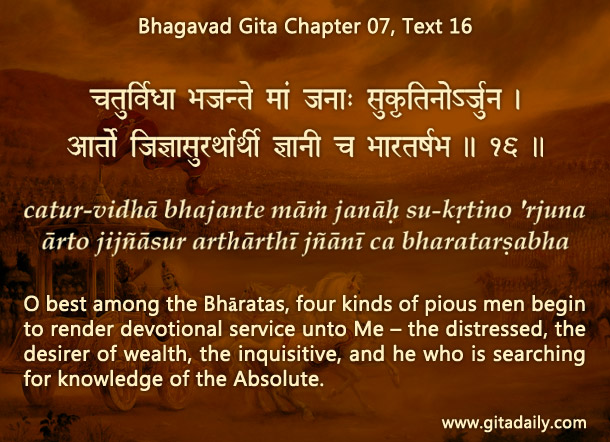The God we grasp refers to how we understand God: the conception of God we have acquired, be it by conscious contemplation or sub-conscious assimilation based on our culture and experiences. We may conceive him as a cosmic provider, or in today’s mentally-distressed world, as a cosmic therapist.
The Bhagavad-gita (07.16) appreciates people who come to God for whatever reason, even if they are largely mundane and self-centered. However, such devotion is not sustainable for it is circumstantial. If our problem is solved, we see devotion as unnecessary thereafter. Or if our problem isn’t solved, then we see devotion as irrelevant.
The God who grasps us is the supremely merciful being who wants our ultimate wellbeing. He sees our complete being: body, mind and soul. And he sometimes does something that may be spiritually beneficial for us even if is physically or psychologically painful.
To evolve from our conception of God to the scriptural revelation of God, we need to study scripture regularly. Through such study, we understand the twin truths – that this world is inevitably a place of distress, and God is infallibly the supreme source of shelter and satisfaction.
The Bhagavad-gita (07.19) states that spiritual evolution over many lifetimes enables us to understand Krishna as the embodiment and fulfilment of whatever we find attractive in the world – when we attain him, then there is nothing more to be attained. By this understanding we become wholehearted and focused in our devotion to him and thus we progress towards illumination, absorption and the supreme satisfaction.
Thus, scriptural understanding helps us minimize the frustration and dissatisfaction coming upon us during our practice of devotion, and it helps us to progress steadily towards the ultimate satisfaction of loving absorption in the all-attractive, all-loving, all-joyful Lord of our heart.
To know more about this verse, please click on the image
Explanation of article:
Podcast:
Download by “right-click and save”


Hare radhakrsna
Thankyou gitadaily team
Studying srila prabhupadaji books are basis of eternal krsna consciousness
All glories to SRI krsna chaitanya mahaprabhuji and srila prabhupadaji
Hare radhakrsna Jai radharani jai siyaram